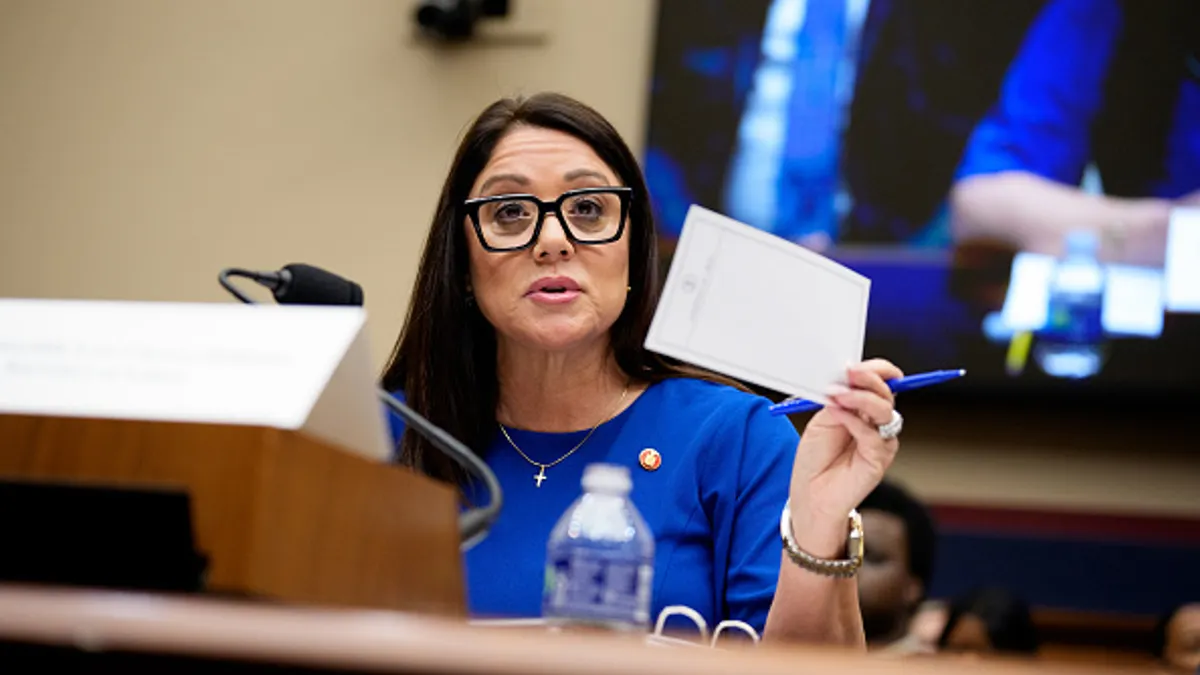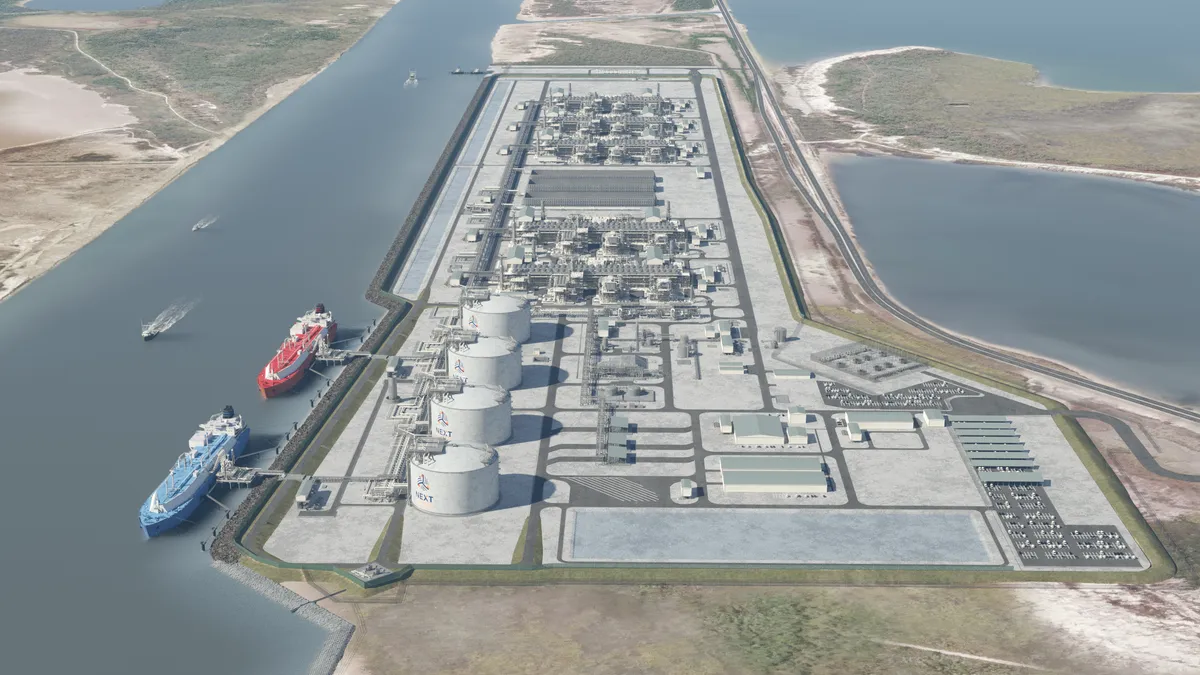This feature is a part of "The Dotted Line" series, which takes an in-depth look at the complex legal landscape of the construction industry. To view the entire series, click here.
In the world of construction contracting, a contract between an owner and the prime contractor, or general contractor, can be broken down into just a few basic types. Lump sum — or fixed price — and cost-based contracts are the two main players in this arena, the latter of which is the basis for the cost-plus-fee with a guaranteed maximum price contract, or GMP.
Sometimes referred to as negotiated or construction manager-at-risk contracts, the cost-plus portion of the GMP contract dictates that the contractor submit payment billing requests, or invoices, for actual costs incurred on the project, plus a fee, which is predetermined as either a fixed amount or as a percentage of costs. There is a cap on how much the owner will pay the contractor, and this cap is the guaranteed maximum price.
These types of contracts are also "open book" contracts, meaning the owner has every right to inspect the books at any time and conduct an audit of the project. These audits can happen periodically throughout the course of the contract or, more typically, as part of the project closeout and before final payment.
When to use a GMP contract
Construction attorney Michelle Schaap, of Chiesa Shahinian & Giantomasi, told Construction Dive that deciding when to use a GMP depends largely on the status of the plans.
"If you don't have a complete set of plans, then you generally won't do a lump sum, which is why you might instead opt for the cost-plus, preferably with a guaranteed maximum price for the obvious reason that if you do the cost-plus without the guaranteed maximum price, then it’s just costs and costs and costs," she said.
Randy Shelly, vice president, hospitality at Shawmut Design & Construction, told Construction Dive, "Right now, probably 60% of our contracts are (GMPs)."
But, Shelly added, there are times when a company should use a GMP, and there are times when it's not the best choice for the project. Shelly said if the construction documents — including plans, drawings and specifications — are 100% complete and there are no unknowns, like with a restaurant chain or retail store that builds the same structure over and over, then it makes sense to use a lump sum contract.
"You know what you're doing, you've done it before, and, so, you already know what it's going to cost," he said.
The time to use a GMP, according to Shelly, is when the owner needs upfront input from the contractor.
"We're involved from the beginning, so we know what the budget's supposed to be, and we look at the first set of conceptual drawings, and we can identify if they're going in the right direction," Shelly said. "If they're not, we can make suggestions and help the architect design it to the budget, as opposed to just designing it and hoping that it stays within budget."
Shelly said the real value for owners in using this type of contract is that by the time the construction documents are complete, the guaranteed maximum price is within their budget, and there won't be a need for time-consuming strategic cost-cutting, also known as value engineering.
Consider the contingency
However, even a guaranteed maximum price isn't as final as it sounds because there are usually contingency funds for unforeseen costs built into the agreement
"It is part of the contract document," Shelly said. "The amount of that contingency can vary, but it's basically a contractor's contingency to use for anything that's considered an allowable cost, like hiring subcontractors and renting scaffolding and all the materials and labor and equipment that it takes to build the project."
Schaap said that if a company has a contingency, then the GMP contract will often include a provision that requires the contractor to advise the owner as to how the contingency is being applied. Then, at the end of the agreement, if the contingency has not been used up, the owner and the contractor will usually share the leftover money, she said.
Brad Robinson, national chair of the Construction Financial Management Association, told Construction Dive, "Anytime you have a GMP, you're going to have a contingency, and, typically, the contingency has a provision where you split some percentage with the owner."
Why owners need to be construction-savvy
Shared savings of the leftover contingency, as well as the difference between the guaranteed maximum price and actual costs, are generally considered an incentive for contractors to keep costs low, but both Schaap and Robinson caution that this area is where the owner needs to be savvy about the construction business.
Schaap said it's difficult for owners who are not familiar with construction to properly monitor costs for contingency or GMP purposes. "They don't know anything about whether they're seeing the appropriate costs and whether the costs that are being provided or the schedule of values are reasonable numbers," she said.
This is the reason, she said, that an owner who doesn't have experience in the field should hire an owner’s representative to oversee cost-related matters on the project.
Another reason the GMP contract price might go over the guaranteed maximum price is a change in the scope of work, according to Robinson. He offered the example of a project where site crews discover a landfill under what everyone presumed was buildable ground. "Now there are EPA fees and all kinds of other costs, and that $10 million scope of work just became a $12 million scope of work," he said.
As far as the actual form of contract, Schaap and Shelly said they typically start with a standard format, such as an American Institute of Architects or Consensus contract, and go from there.
Shelly said Shawmut is usually able to use AIA forms with very little modification, and Schaap said the number of changes she makes to a base contract depends on her client. She consults with her client, usually an owner, to determine how "owner-centric" they want the contract to be.
An example in the spotlight — but not the contract's fault?
Perhaps the most infamous GMP contract these days is that of the Green Line light rail extension project in Boston. The $1 billion cost overruns, delays and finger pointing on the project resulted in the Massachusetts Bay Transportation Authority terminating all lead contractors on the project, including the White-Skanska-Kiewit consortium.
"The problem wasn't the contract type. It was the process," Shelly said. He added that he has no inside information on the project but has gleaned enough from reports to be able to reasonably piece together what might have happened.
Shelly said the MBTA would have hired the contractor based on fees, general conditions and contractor qualifications, and, then, the contractor most likely provided upfront budgeting, scheduling and all the other assistance that is normally given under a GMP contract. Typically, according to Shelly, a GMP project gets to the point where the construction documents are complete, and the contractor prices the entire project out to establish one guaranteed maximum price.
But, Shelly said, that's not what he thinks happened in the case of the Green Line. "They never knew what the total cost was because they didn't have drawings, so they were just awarding it in pieces." After a few rounds of bidding on different segments of the project were complete, he said, the MBTA realized the costs were significantly higher than anticipated.
"So it's not the contract type. It's their procurement process that created the problem," Shelly said. "Any contractor would've found themselves in the same position."
The Dotted Line series is brought to you by AIA Contract Documents®, a recognized leader in design and construction contracts. To learn more about their 200+ contracts, and to access free resources, visit their website here. AIA Contract Documents has no influence over Construction Dive's coverage within the articles, and content does not reflect the views or opinions of The American Institute of Architects, AIA Contract Documents or its employees.




















